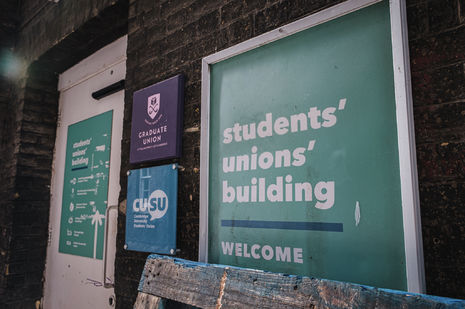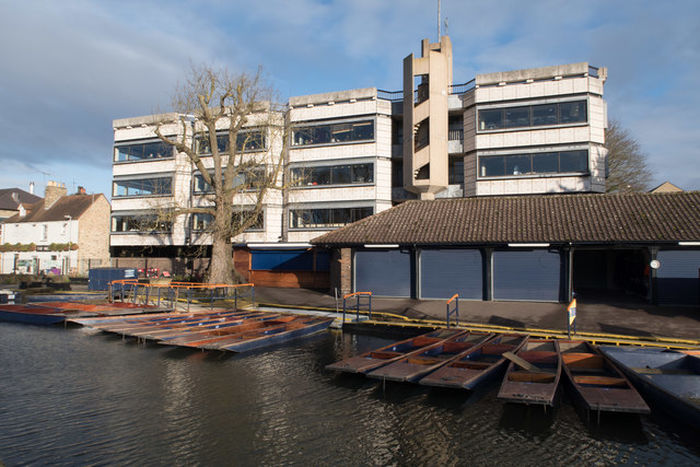The SU needs a shake-up
Deputy Opinion Editor Hugh Jones argues the SU neglects fundamental issues which students face on a daily basis, in favour of long-shot follies

Content note: this article mentions sexual harassment and assault
The mental health of university students is notoriously poor, and at Cambridge this problem seems especially acute. Students are so on edge that the addition of even relatively minor stresses, like the dreaded room ballot, can unleash needless angst and pointless arguing among the student body. Fortunately, however, our fearless leaders at the Student Union (SU), our democratically elected representatives, who have diligently committed to take a year – or two! – out of their degrees to work for us, have a plan.
That plan is the reading week. At the same time as this term’s elections, the SU held a referendum on this issue, asking people if they would support a reading week, in order to demonstrate that they had a mandate to lobby the University over the policy. And it worked! The Yes campaign won a sweeping 64% of the vote, with a heady turnout of 16%. All this after a referendum in which the No campaign was headed by an unwilling fresher who was dragged into the role by the SU after merely expressing his interest in the campaign. Despite the lack of representation for the No campaign at hustings, and the failure to even publish a manifesto, according to the SU, a solid one in ten students definitely support a reading week! If that isn’t democratic legitimacy, I don’t know what is.
“The SU seems concerningly out of touch with students”
Needless to say, I am not the biggest fan of the SU. I have only been here for (nearly) two terms, but I have already gathered the impression that it is something of a farce. The dabbling I have done in Cambridge political life, since joining the Opinion team at Varsity this term, has shown me that this University is full of very ambitious people who will do all sorts of incredibly dull things for a very small amount of political capital - but that none of those people would dream of getting involved in the SU.
Perhaps being free of the back-stabbing and port-drenched misogyny which taint the other Union isn’t such a bad thing. But it is still worrying that even the people who take everything else far too seriously don’t have time for the body which is supposed to represent us.
The SU also seems concerningly out of touch with students. I appreciate that I am probably in the minority in opposing the strikes earlier in term, but surely organising breakfast runs for lecturers whilst our education suffers is not an appropriate response to the issue. One does wonder how a group of students who don’t actually study can effectively represent their constituents, a perception compounded by the strange levels of ideological homogeneity within the SU. I actually read through the candidates’ manifestos before these elections, something which I found extremely confusing because I genuinely couldn’t tell the proposals apart. They all just merged into one blurry mess of demands for decolonisation and suggestions of solidarity.
Thus far, I have found all this quaintly amusing. The SU is another waste of University money perhaps, but no one is actually harmed – right? After all, the criticism which I hear almost every time I bring the SU up is “but they don’t actually do anything, do they?” Recently, however, I reconsidered this, and decided that I was being unfair. The SU really is very important, not because of what they do, but because of their responsibilities. The problem is that they are failing to carry them out.
Cambridge students face a lot of problems, as a brief scroll through Camfess will demonstrate, but I want to focus on two major ones: mental health provision and sexual assault. The University and Colleges are not doing enough on either, and critically, the SU are not doing enough to hold them to account. Treating the SU as a farce is funny until you realise that there are people in this University who are really suffering, and that the SU has a responsibility to help them.
“There is so much the SU could be doing”
In my own College, Magdalene, friends have repeatedly expressed a concern that they do not know who to turn to in the event that someone experiences a mental health crisis. The main point of contact for welfare seems to be our Chaplain, who is wonderful, but also not a mental health professional. The frequency of intermission across the University is shockingly high. If the SU sat down and decided to try to fix this, they would have a real chance of pressuring colleges to spend more on supporting students, and make the resources that are available better advertised and administered.
The state of colleges’ responses to sexual assault is even darker. It seems that not a single college has a grip on the problem. I know of almost dozens of cases of assault and harassment going unpunished; I do not know of a single case of someone being expelled for it, which, bleakly, is incongruous with how sickeningly widespread such crimes are. The SU do claim to care about this, and to their credit did procure a number of spiking covers for drinks, but this does not go nearly far enough. There is so much the SU could be doing, perhaps starting with pressuring colleges to professionalise their response to such serious allegations, which are all too frequently handled by busy academics in their spare time.
The tragic corollary of the SU’s reputation for incompetence is that cases like the one featured in this article are replicated again and again across Cambridge. If anyone from the SU is reading this: please, stop posturing, stop messing around with long-shot follies like the reading week, stop wasting time on divisive strike discourse, and actually focus on the bread-and-butter issues that face Cambridge students on a daily basis . Until you do, the most vulnerable members of our University are going to keep paying the price.
Anjum Nahar, Cambridge SU Postgraduate President, commented:
This year, my team has worked tirelessly on shaping the university-wide mental health strategic review, researching common problems related to intermission, and tackling sexual and racial harassment and abuse by campaigning to improve University disciplinary procedures. This article fails to recognise any of the SU’s recent successes, especially those that relate to postgraduate students and disabled students.
I also refute the notion that sabbatical officers are disconnected from student life given that we talk to current students on a regular basis, and that we are either current students or have only recently finished our degrees. I realise that the SU needs to do more to spotlight our good work, and this is something we'll be working on over the coming months.
 Comment / The (Dys)functions of student politics at Cambridge19 January 2026
Comment / The (Dys)functions of student politics at Cambridge19 January 2026 Arts / Exploring Cambridge’s modernist architecture20 January 2026
Arts / Exploring Cambridge’s modernist architecture20 January 2026 Features / Exploring Cambridge’s past, present, and future18 January 2026
Features / Exploring Cambridge’s past, present, and future18 January 2026 News / Your Party protesters rally against US action in Venezuela19 January 2026
News / Your Party protesters rally against US action in Venezuela19 January 2026 News / Local business in trademark battle with Uni over use of ‘Cambridge’17 January 2026
News / Local business in trademark battle with Uni over use of ‘Cambridge’17 January 2026









